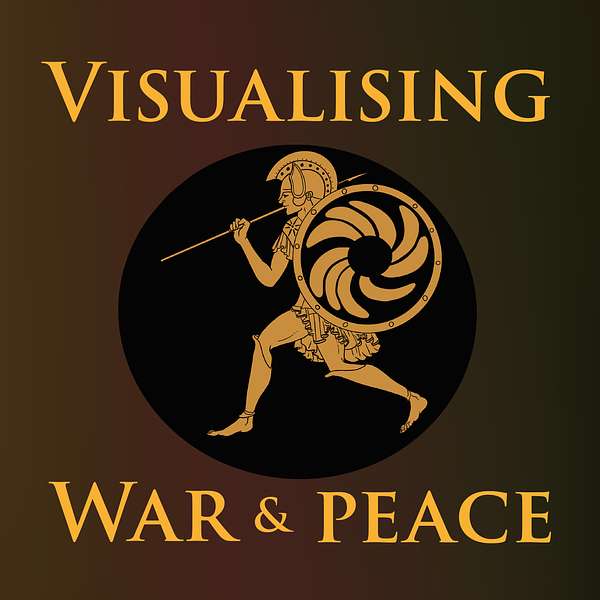
Visualising War and Peace
How do war stories work? And what do they do to us? Join University of St Andrews historian Alice König and colleagues as they explore how war and peace get presented in art, text, film and music. With the help of expert guests, they unpick conflict stories from all sorts of different periods and places. And they ask how the tales we tell and the pictures we paint of peace and war influence us as individuals and shape the societies we live in.
Visualising War and Peace
Peace and post-trauma recovery in Northern Ireland
In this episode, Visualising Peace students Otilia and Harris interview Johanna McMullan and Paul Gallagher who are trained educators at the Widows Against Violence Empowerment (WAVE) Centre. WAVE is the largest cross-community victim group for people who have been affected by conflict in Northern Ireland from 1968-1998. While The Troubles officially ended over 25 years ago, past violence, current tensions and ongoing traumas continue to impact people today. WAVE promotes peace, reconciliation, and trauma recovery through 5 different centres and 15 satellite projects across Northern Ireland.
Johanna is a senior Nursing and Midwifery lecturer at Queens University in Belfast. For over a decade, Johanna has been working with the Wave Trauma Centre in Belfast where she delivers citizen education programs and other trauma-informed training. Paul came to WAVE in 2010 for support after he was severely injured in 1994, having being shot 6 times. Today, through trauma recovery at WAVE, Paul has obtained his master’s degree in conflict reconciliation and social justice and his PhD thesis in Sociology. Throughout the conversation, Paul and Johanna share their insights into how education through loving and caring practices enable victims to recover from trauma and support the fragile, yet lasting peace in Northern Ireland.
In the episode, Johanna first delves into the different aspects of love and care that are important to consider when designing trauma-informed education for citizens and health-care professionals. Paul then shares his personal story of how a sense of communal care and inner peace were crucial for his own healing, discussing also how trauma affects the human mind and body over time. Both Johanna and Paul emphasise that the path towards sustaining peace – in Northern Ireland and elsewhere – depends on the collective reflection and co-operation of a caring community. To build such a community in practice, WAVE brings citizen education to the forefront of their work; their trainers bring different generations together in remembering the conflict and also in promoting trauma recovery through multiple generations.
We hope you find our conversation interesting.
For a version of our podcast with close captions, please use this link. For more information about individuals and their projects, please visit the University of St Andrews' Visualising War website and the Visualising Peace Project.
Music composed by Jonathan Young
Sound mixing by Harris Siderfin